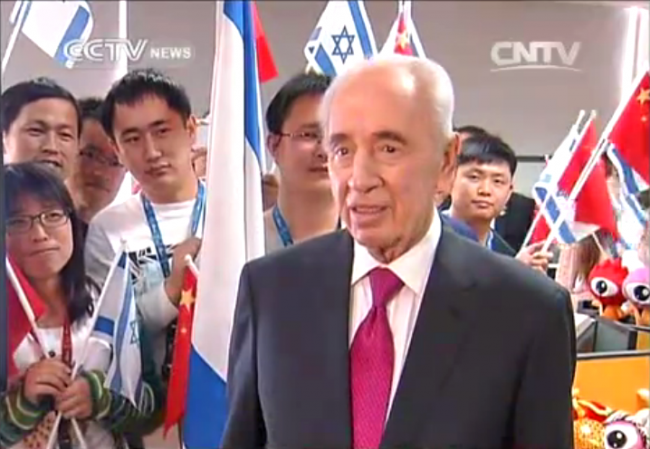Israel winning the social media war … in China
Israel finds friends through Chinese social media, lots and lots of friends.

I guess it is not really surprising that Israel is doing well in Chinese social media.
Israel and China have signed a series of new trade agreements in recent months, including academic cooperation, as we detailed in Israel-China tech deal another blow to BDS.
Those expanding trade connections, based in large part on Chinese desire for Israeli technology and know-how, have continued uninterrupted during the Gaza hostilities:
China is now Israel’s second- largest trading partner, with exports of US$2.88 billion and imports of US$7.99 billion last year. Chinese companies are eyeing several high-profile investment deals in Israel.
These include tendering for construction of a railway linking Eilat on the Red Sea and Ashdod on the Mediterranean, and purchasing a more than US$1 billion controlling stake in Tnuva, Israel’s dairy giant.
Peter Cai at the China Spectator writes on September 2, How Israel is winning the social media war in China:
The ongoing conflict between Israel and Palestine has captivated and polarised international opinion. While Israeli fighter jets were pulverising buildings with “precision weapons” and Hamas was firing rockets at Israel, they were also waging another all out information war on social media….
Considering China’s increasingly important international stature and its close connection to the Middle East, it is not surprising that Israelis are pouring resources into winning the war of opinion in the Middle Kingdom.
Michael Anti, a prominent Chinese blogger looks at this intriguing issue in his latest column in Caixin, a respected business magazine. He observes that Taiwanese social media users are generally supportive of the Palestinian cause while many mainland Chinese are rooting for the State of Israel. It is an interesting reversal of their countries’ official positions, Taipei is generally considered to be pro-Israel and Beijing pro-Palestine.
Like the ground war in the Middle East, Israelis have been engaging in a large scale asymmetrical information war in Chinese social network against Palestinians. The Israeli embassy in Beijing maintains one of the most popular social media accounts among diplomatic missions in China, with close to 850,000 followers. By comparison, the US embassy has 890,000 followers.
Israeli president Shimon Peres is also one of the few Western leaders who maintain a social media presence in China and he has more than 450,000 followers. Official Israeli posts are attracting a lot of sympathetic comments, for example, a recent Israeli embassy post which compares Hamas to the notorious IS terrorist organisation is drawing many sympathetic comments….
Then President Shimon Peres was a Weibo (the Chinese social media site) hero in China with 50 million “likes,” as reported by the Jerusalem Post in April:
At Shimon Peres has encountered more than a little criticism for his ongoing defense of Palestinian Authority President Mahmoud Abbas as a partner for peace. But in China, where he has been received with great warmth and respect, more than 50 million people have indicated that they like him.
On Thursday, the last day of his state visit to China, Peres launched a presidential account on Weibo, the Chinese answer to Facebook, and within minutes of doing so received responses from more than 50 million surfers.
(Featured Image Source: Shimon Peres goes online with Chinese on Weibo)
 DONATE
DONATE
Donations tax deductible
to the full extent allowed by law.








